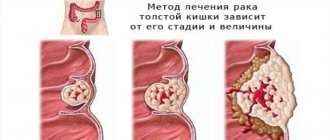Surgery is a medical science that has existed for thousands of years. She studies acute and chronic diseases and how to treat them through invasive interventions. From ancient Greek the word “surgery” is translated as “manual work”.
In surgery there are many narrow areas that are associated with the surgical treatment of specific human organs:
- vascular surgery;
- Maxillofacial Surgery;
- neurosurgery;
- cardiac surgery;
- plastic surgery;
- gynecological, etc.
Any surgeon must have a good knowledge of the anatomy and functioning of human organs. Each of these specialists must have basic knowledge of general surgery.
Specializations and related areas[ | ]
See also: Surgery
- Surgical coloproctology
- Prosthetic surgery
- Surgical dentistry
- Skin surgery
- Pediatric surgery
- Hand surgery
- General surgery Thoracic surgery (a branch of surgery dealing with diseases of the chest organs) Cardiac surgery - a branch of surgery dealing with the correction of heart pathology
- Surgery of the liver and biliary tract
What does a surgeon do?
The surgeon stops bleeding, removes tumors, treats joint pathologies, removes kidney stones, performs cesarean sections, operates on joints and the heart, restores damaged tissues, transplants organs, performs plastic surgery, as well as many other surgical procedures.
The surgeon also plans anesthesia; during the operation, he monitors the patient’s condition and corrects complications.
In addition, depending on the place of work, the surgeon carries out on-site examinations, outpatient visits, medical examinations, and participates in medical examinations.
In addition to the operation, the surgeon also deals with the accompanying documentation. Interacts with other physicians, especially assisting nurses and anesthesiologists.
The founders of surgery[ | ]
See also: Surgery
- Nikolai Pirogov - founder of military field surgery, made a decisive contribution to the development of topographic anatomy and the doctrine of fascia
- Theodor Billroth - founder of abdominal surgery
- Victor Chang - Australian, founder of heart transplant operations
- Harvey Cushing is a pioneer, often recognized as the founding father of modern neurosurgery.
- Lol So (Trinidad) - urologist, pioneer in the field of renal transplantation; advocated the use of Viagra
- Valery Shumakov is a pioneer in the field of implantation of artificial organs
- Svyatoslav Fedorov - developer of radial keratotomy
- Yaşargil Ghazi was a Turkish neurosurgeon who worked in Zurich, Switzerland. Founder of microvascular surgery
When is a surgical consultation necessary?
There are a huge number of pathologies that should be addressed to a surgeon, but they are all divided according to the type of disease process. Based on this criterion, it is possible to identify conditions requiring consultation with a surgeon:
- Surgical injuries - the type of injury can be either open or closed (thermal and electrical burns, severe bruising, concussion, organ rupture, long-term compression syndrome, fracture, dislocation, etc.)
- A surgical infectious process is an inflammatory reaction due to the entry of pathogenic microbes into the body. This can cause a simple abscess or more serious consequences such as sepsis or peritonitis.
- Congenital malformations
- Tumor diseases, both on internal organs and on the surface of the skin
- Circulatory disorders (gangrene, fistulas, skin ulcers, tissue trophic disorders, perforations)
- Complications of parasitic infestations
You should also immediately contact a surgeon if there is sharp and sudden pain, if blood is detected in stool, urine, if there are neoplasms of unknown origin, if there is spontaneous redness and swelling of soft tissues.
Salary[ | ]
The American magazine Forbes published the results of its annual ranking of professions. According to their calculations, one of the highest paid professions in the United States is a surgeon.[2] But a surgeon’s salary depends on the specific specialty, as well as on work experience, position in the clinic and the specifics of the clinic. For example, an operating doctor earns less than the head of a surgical department, but more than an attending physician in a hospital. Doctors in social government or charitable medical institutions and experimental research institutes earn significantly less than their colleagues from commercial private clinics.
Indications for contacting a general surgeon
Most often, a general practitioner writes a referral to a surgeon. Since many people do not know what symptoms they should contact this doctor directly.
Based on the following symptoms, you can, without wasting time, go to see a general surgeon:
- nausea;
- vomiting mixed with blood, which does not bring relief;
- abdominal pain of a girdling nature or sharp “stabbing” pain throughout the abdomen;
- pain near the navel;
- constipation;
- pronounced yellowish tint to the skin and sclera of the eyes;
- bitterness in the mouth;
- diarrhea accompanied by abdominal pain;
- blood in urine or feces;
- swelling and redness of soft tissues;
- a cut;
- foreign object under the skin.
The surgeon prescribes qualified treatment or refers to a more specialized specialist based on a series of tests and using instrumental methods. The main treatment method used by the doctor is surgery.
How is the initial appointment?
In any, even the smallest provincial clinic, the surgeon conducts an initial appointment according to one scenario. First of all, he interviews the patient and listens to his complaints. Then he conducts an examination and prescribes the necessary examinations (tests, x-rays, ultrasound and others). This allows a decision to be made about the advisability of surgical intervention.
When treating injuries, she carries out treatment, applies sutures, gauze or plaster bandages.
Are phlebologists and vascular surgeons the same thing?
It is immediately worth noting that a vascular surgeon and a phlebologist are different specialists. They deal with similar diseases, but with different specifics of the disease and treatment methods. Therefore, in some cases, patients with vascular diseases are sent to a phlebologist, in some situations to an angiologist, and in rare cases directly to a vascular surgeon. To understand the difference in these medical specialties, you need to understand that phlebology is part of vascular surgery, the most difficult when the patient urgently needs to take care of his health.
A surgeon in this area has a specific “area of responsibility” - these are all the veins, vessels, arteries that require surgical intervention. In all other cases, no matter what the nature of the pathology, even if it is an acquired disease, the vessels are treated therapeutically. If surgical intervention is unavoidable, the patient is sent straight to a vascular surgeon.
But still, phlebologist and vascular surgeon, what is the difference? To do this, let's take a closer look at the specifics of each of them.
What does a phlebologist treat?
Patients with problems of the veins of the lower extremities are sent to this specialist. This is the main difference. It is recommended to contact him if symptoms such as:
- swelling of the legs, regardless of whether it appears only in the morning or in the presence of any circumstances;
- the appearance of bulging, excessive blueness of the veins;
- manifestation of a “star” symptom (capillary network) on the skin or bruises on the body without physical impact;
- severe pain, burning, heaviness in the legs in the evening without increasing physical activity;
- manifestation of cramps in the legs (in the calf muscles).
Often, a phlebologist is faced with varicose veins, for which several treatment methods have been developed. He also deals with the following issues:
- blood clot formation (thrombophlebitis);
- venous insufficiency (weakening of the venous walls, lack of vitamins, poor blood composition);
- the appearance of trophic ulcers against the background of thrombophlebitis;
- insufficient valve function.
You need to sign up for a consultation not only when the disease has already manifested itself, but also to receive advice on preventing the formation of this dangerous and common disease. Patients over 35 years of age are recommended to undergo regular diagnostic testing for diseases associated with veins and blood vessels.
Long treatment
Facial and oral pain is a challenging medical problem around the world that is treated by several physicians. Sometimes patients spend a lot of time searching for the necessary specialist. Such patients are a kind of medical orphans who have been looking for their doctor for years.
Treatment of facial pain is a long process. This is due to the nature of a number of diseases, characterized by numerous exacerbations and the complexity of selecting effective therapy.
Article on the topic
When your face hurts. What is idiopathic facial pain
However, if the diagnosis is made correctly, the treatment recommended by the doctor should reduce the severity of pain and accordingly improve the patient’s quality of life. If this does not happen, be sure to contact other specialists. You shouldn't endure pain for years.
Types of diagnostics performed by a surgeon
To make the correct diagnosis and prescribe subsequent treatment, a qualified and competent surgeon uses the following types of diagnostics:
- subjective examination (collecting the patient’s medical history);
- objective examination (palpation, examination, etc.);
- ultrasound techniques (allow you to check for intestinal obstruction, kidney stones, gallstones, neoplasms in the abdominal cavity, etc.)
- implementation of magnetic resonance imaging;
- laboratory tests (coagulogram, blood/urine tests, immunological tests, etc.)
- endoscopic techniques
- radioisotope techniques
- X-ray methods, including computed tomography
Also, for an accurate diagnosis, diagnostic operations are performed as necessary: laparoscopy, arthroscopy, punctures, biopsy sampling of cells or tissues, etc.
Only the surgeon decides which diagnostic method will be used.
What is surgery?
Surgery is a broad field of medicine that studies acute and chronic diseases, the treatment of which requires operations. This method involves an incision or puncture of the skin and mucous membranes to gain surgical access, eliminate organ pathology (treatment), and restore the integrity of the cut tissues. Each operation is complex and painstaking work. The surgeon must thoroughly know the features of the structure and functioning of the organ or organ system he is treating.
Where do surgeons study?
Many medical students want to be surgeons, but not everyone achieves their goal. For six years, a student “gnaws granite” at a medical school, but after receiving a medical diploma, he will be able to engage in general practice in a clinic or district hospital. To be admitted to the operating table, a young specialist undergoes a two-year residency and receives a confirmatory certificate. This is followed by postgraduate study, which lasts 3 years. But even after this, the young doctor works under the supervision of a more experienced specialist. To become an independent practicing surgeon, a young specialist completes his studies for another 5-10 years.
A world-class surgeon must speak foreign languages (at least English), attend conferences at various levels, and even better, make presentations at them. And a surgeon will have to study throughout his entire professional career, otherwise he will hopelessly lag behind medical progress.
Surgeon's office equipment
The surgeon's office is not an operating room. It is intended for advisory assistance, therapeutic and diagnostic procedures.
The office is divided into two zones: a patient examination area and a medical manipulation area. It must contain all the necessary furniture, appliances and tools in accordance with the standards. The presence of an operating chair in a surgeon's office is mandatory; in some cases, a table is installed.
Proper lighting is a must, the light should be cold, there are special lamps and fixtures for this.
According to standards, it is mandatory for a surgeon’s office to have:
- stadiometer;
- laser coagulation device;
- small surgeon set;
- Ambu bag;
- tonometer;
- radiosurgical knife;
- fixing splint;
- sterilizer for instruments;
- bactericidal irradiator;
- aspirator;
- putty knife;
- negatoscope;
- scales;
- transport tire;
- resuscitation kit
- wire tire;
- thermometer;
- shadowless lamp;
- containers for disinfecting tools and waste;
- Shants collar;
- tape measure;
- stethoscope;
In addition, it is important to have a couch, a refrigerator, cabinets, a table, tool boxes and a work chair.
Proper equipment of the surgeon’s office helps the doctor’s work and the patient’s stay comfortably.











